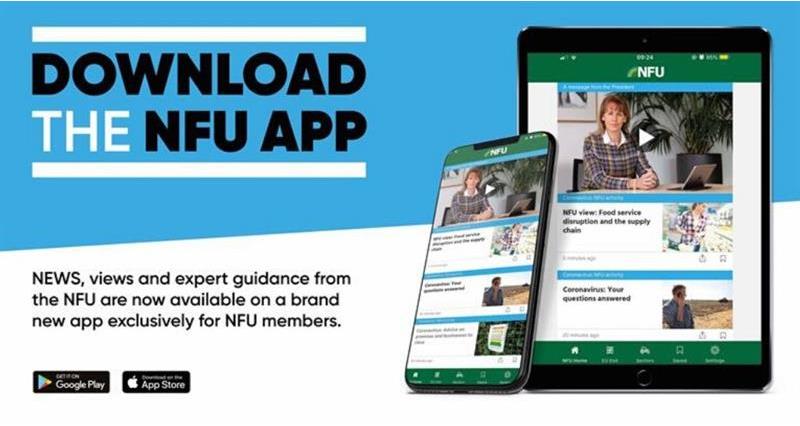This will provide additional access to the UK market for raw sugar grown anywhere in the world, often produced following farming practices that would be considered illegal and with technologies that are banned in the UK for comparable UK grown arable crops.
What does the announcement mean?
The 260kt ATQ is in addition to the assortment of existing concessions offered to sugar producers around the world, including:
- Unlimited access for the Least Developed Countries provided through the Everything-But-Arms arrangements.
- Unlimited access for African Caribbean and Pacific (ACP) countries through Economic Partnership Agreements (EPAs).
- Additional concessions that have arisen out of the 'Trade Agreement Continuity' (TAC) programme for the free trade agreements the UK was signatory to while an EU member and that the UK has rolled over since leaving the EU. The market access quotas were not “split” but rather replicated. This includes countries within the Central American, Andean Community and SADC (South Africa) agreements. These additional concessions amount to 140kt of duty free access for raw sugar.
- The UK’s bound commitments at the WTO which contain a number of reduced and zero tariff concessions.
The details of the ATQ’s implementation are yet to be decided. NFU Sugar understands it will be included in a wider government review of tariff suspensions due in the autumn of 2020, led by DIT.
The UK’s approach to this new sugar concession is highly concerning, as widespread market distortions and differences in regulatory standards compared to UK sugar production mean a zero tariff quota does not achieve genuine economic competition. The UK homegrown sugar industry is the third lowest cost sugar producer in the world, but growers in the UK cannot compete on the same terms as sugar growers elsewhere who have access to state support or technologies that are illegal in the UK.
What is the NFU Sugar position?
NFU Sugar board chairman Michael Sly said: “The UK government’s new zero tariff raw sugar quota is highly concerning, unjustified and unnecessary.
"British sugar beet growers are some of the most efficient in the world but allowing tariff free access to sugar from any country, produced in ways that would be illegal in the UK, will simply undercut UK growers and the standards they produce to. This quota system will also undermine the existing preferential access granted to developing countries.
“We believe the government should urgently review this tariff and ensure that any imports under this tariff-free quota are produced to the same standards required of our growers.”
There are sufficient quantities of sugar available for the UK market via domestic production and existing preferential partners. The opening of a zero tariff ATQ for raw sugar will distort competition in the sugar market and lead to unfair competition for UK growers by failing to uphold environmental standards for imported product, off-shoring legitimate environmental concerns.
- The UK consumes approximately 2Mt of sugar, and typically produces 1.1-1.4Mt from domestic beet, leaving a typical shortfall of 600-900kt to be fulfilled by imports.
- However, there is in fact no published UK sugar balance sheet or other transparent measure of UK demand on which to base an assessment of market needs.
- Unlimited duty free access is available to ACP/LDC countries that have historically supplied over 2Mt of sugar to the EU (including UK). These countries had a net export surplus of around 2.5Mt in 2019, after allowing for other preferential markets.
- The UK has granted an additional 140Kt of duty-free access to various countries under replicated FTAs, which will come on top of existing access levels to the EU.
- There is a further series of bound concessions at reduced tariff rates in the UK’s WTO schedule.
- If the UK agrees tariff free, quota free trade in goods with the EU, as the government hopes to achieve, the EU’s typical sugar exports of 1-3Mt annually could also access the UK.
- The ATQ has been structured in such a way that it can only be accessed by the one raw sugar refining company operating in the UK. This is an American owned company with its European operation covering the UK, Portugal and Italy, allowing it to take advantage of the expansion in access that comes from the replication of FTAs and to take advantage of concessions in either the EU or UK tariff regimes as necessary for the European branch of the business.
- Raw sugar is an inappropriate product to measure market supply against, as it is an intermediate product used in one particular method of white sugar production. An assessment of sugar market conditions should be based on total white sugar supply and demand.
- The ATQ exposes UK sugar growers to competition from sugar growers around the world that benefit from payments, distortions and access to production methods that would be illegal in the UK.
- Allowing tariff free access to all countries takes away any value from the preferential access arrangements granted to developing countries which the government has reaffirmed it wishes to support in the remit of the Trade and Agriculture Commission.
In seeking to justify this sugar ATQ, the government has said it has been introduced “in order to balance support for UK producers and to maintain preferential trade with developing countries.” Neither of these aims are achieved by the introduction of a tariff free quota open to all countries.
Next steps
The government has announced a forthcoming review of all ATQs under the UKGT, of which the ATQ for raw cane sugar is the only one announced to date. Within this review, the NFU believes government should apply conditions to access the ATQ, and administer it in a way that can ensure these conditions are upheld. This will ensure the raw sugar ATQ follows the same principles as those set out in the Trade and Agriculture Commission’s remit, not to allow UK farmers to be undermined by product that has been produced in ways that would be considered illegal if it had been produced here in the UK. Clearly the UK does not grow sugar cane, but does grow sugar beet and comparable standards can be applied to UK arable crops.
The Trade and Agriculture Commission's remit includes “ensuring the sector remains competitive and that animal welfare and environmental standards in food production are not undermined”. These standards include the regulations UK growers must follow on plant protection products and access to breeding technologies.
For example, there are over 25 active substances permitted for use on sugar cane in Australia that are illegal for any use in the UK. These include products such as Paraquat that have been banned in the UK the grounds of environmental impacts. If these are deemed inappropriate for use by UK growers, trade policy should enforce the same regulations, otherwise we simply export the impact of using these products.
These principles should be followed in both the UK’s tariff schedule and in individual free trade agreements. An erga omnes ATQ for raw sugar in the UKGT without an appropriate framework for access removes the UK’s ability to achieve fair competition that follows the principles set out by the Trade and Agriculture Commission. Any ATQ that is opened must uphold the same standards asked of UK producers.
The Trade and Agriculture Commission’s remit also includes “Advancing and protecting British consumer interests and those of developing countries.” The tariff free, erga omnes ATQ runs counter to this aim, as it undermines the preferential basis on which developing countries can export to the UK. Developing countries have long enjoyed preferential tariff free access to the UK sugar market through a combination of Everything-But-Arms arrangements, Economic Partnership Agreements and the UK’s bound commitments at the WTO, meaning that access for these countries, underpinned by existing policies, would not depend on meeting the same conditions those countries wishing to avail of the ATQ must meet. This structure maintains a genuine level of preference for developing countries.
The Taxation (Cross-border Trade) Act 2018 foresees the application of quotas and tariff suspensions. It allows for provisions imposing conditions subject to which a quota has effect, and for regulations to impose conditions on the application of a lower tariff rate suspension.
NFU proposal
Administration of the ATQ: In the case of the raw cane sugar ATQ, access should be subject to meeting certain conditions:
- Sugar must be produced from cane to the same regulatory standards as required through the regulatory system arable farmers in the UK operate under, including as relates to plant protection products. This is the sort of complex comparison we expect the Trade and Agriculture Commission to address.
- Sugar must be produced from cane that has been bred according to a method legal in the UK.
- ATQ allocation should be based on a new style of trade policy that reflects internal market distortions including payments, NTB and other regulatory differences where the regulatory choice is anti-competitive or trade distortive.
To complement this, we believe that the raw sugar ATQ should be managed in the following way:
- Via import licenses, which would be granted upon proof of the supply meeting the conditions. These also provide for greater market transparency.
- Divided into monthly tranches, to avoid the significant market disruption of the annual volume arriving in a short period of time. An ATQ opening in January will be introduced part way through the sugar marketing year which runs from October to September, adding further risk of disruption which can be mitigated by dividing the ATQ into monthly tranches.
- Entrust the duty of establishing and managing the ATQ to an independent body.
Read more on trade and tariffs from the NFU's EU exit and international trade team:
- NFU insight: The UK's Global Tariff Schedule
- Unions respond to government global tariffs regime
- How will the GB and EU border work from next year?
- NFU insight: UK government's approach to border controls from 1 January 2021
- NFU raises key issues in response to government consultation on freeports
More from NFUonline:

